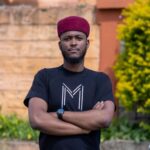
Nigeria’s transition towards autocratic rule became undeniable last week after the government imposed a ban on Twitter. The catalyst for this decision was the removal of a tweet by President Buhari, which appeared to threaten violent retribution in the South-East region, where violence had been escalating. The government viewed Twitter’s action as a provocation, which led to the subsequent ban. Information Minister Lai Mohammed accused Twitter of being anti-Nigeria, citing its support for the #EndSARS protests and its platform being used by opposition figures like Nnamdi Kanu, leader of the Indigenous People of Biafra (IPOB).
The Shift in Nigeria’s Political Landscape
A country’s descent into authoritarianism is often marked by how it perceives threats to its authority. Stable democracies typically view external threats or military aggression as national security concerns. However, in unstable nations, the government may also perceive domestic acts, such as social media campaigns or protests, as threats to the regime. Nigeria’s paranoia about such threats has led to significant restrictions on civil liberties, particularly freedom of speech.
In Nigeria, President Buhari’s failure to understand the importance of political opposition was evident early in his tenure when, soon after his election in 2015, he banned African Independent Television (AIT) from covering government events, citing their previous critical campaign coverage. His failure to recognize opposition as a vital component of democracy has led to a series of repressive actions, undermining the civic space in Nigeria.
Escalating Attacks on Democratic Institutions
The Buhari administration’s authoritarian tendencies further emerged in 2016 when the Department of State Services (DSS) conducted a raid on the homes of high-ranking judges, an aggressive action aimed at curbing corruption in the judiciary. Despite the public outcry, the government persisted, claiming such extreme measures were necessary. Additionally, Buhari’s government has ignored numerous court rulings, including orders to release detained opposition figures. This disregard for the judiciary’s autonomy represents another blow to Nigeria’s fragile democracy.
Targeting the Internet: A New Frontier
Now, Nigeria is turning its attention to the internet. Countries with poor human rights records, like Mali, Chad, and Russia, have been known to shut down internet access for political reasons, and now Nigeria has followed suit. Unlike other nations that cite national security concerns for internet shutdowns, Buhari’s motivation for banning Twitter seemed to stem more from personal grievance. This move to restrict online platforms and silence dissent signals a further erosion of democratic ideals under Buhari’s rule.
The government is reportedly working with China to establish a “Great Firewall” in Nigeria, which would give it the ability to monitor and control online activities, similar to China’s censorship system. This system involves internet filtering, blocking websites, and other surveillance methods that allow the government to suppress opposition and dissent. Despite the financial burden of implementing such a system, the government is determined to gain full control over the digital space.
The Cost of Authoritarianism
The desire for control extends beyond the internet. Buhari’s administration has shown an obsession with controlling key sectors such as media, currency, and even essential goods like rice and milk. The speed with which internet service providers complied with the Twitter ban, without any judicial order, demonstrates the level of control the government now wields over the private sector.
Even more troubling is the absence of any meaningful challenge to the president’s actions. The parliament has not discussed impeachment despite numerous constitutional violations, illustrating the extent to which the country’s democratic structures have eroded under the weight of autocratic rule.
Conclusion
Nigeria’s move towards authoritarianism is unmistakable. The government’s decision to target Twitter, restrict civil liberties, and manipulate the judiciary are all signs of a regime increasingly willing to sacrifice democratic principles for control. The nation’s descent into autocracy is not only a political concern but also a human rights issue, and it is clear that unless drastic changes are made, the country will continue down this dangerous path.


